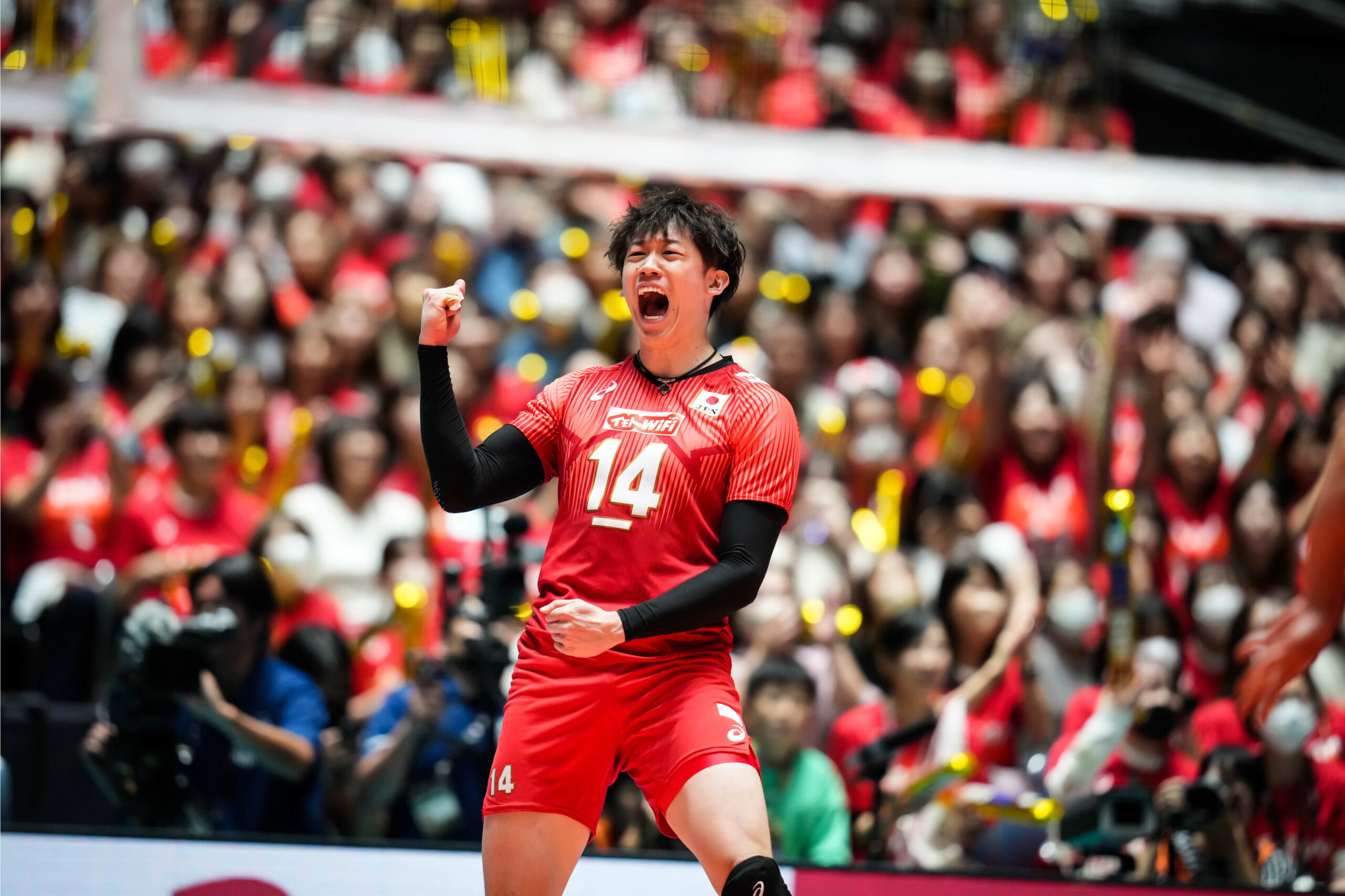The Japanese men's volleyball team, also known as Ryujin Nippon, recently successfully secured an Olympic ticket at the World Cup/Paris Olympic qualifiers held in their home country, ending this season in the best possible way.
This will be the second consecutive Olympic Games since the Tokyo Olympics, and the first time he has qualified on his own after winning the qualifying rounds since the 2008 Beijing Olympics.
This year also saw historic results, including a victory over Brazil for the first time in 30 years and a medal at a major world championship for the first time in 46 years.
What was the key to Ryujin Nippon's success this year? I believe the following three factors have played a major role.
① Ishikawa Yuki became a "winning leader"
② The growth of Takehito Miyaura
3. Tanuki the Dragon Trainer, directed by Philippe Blanc
Now let me explain each one in detail.
① Ishikawa Yuki became a "winning leader"
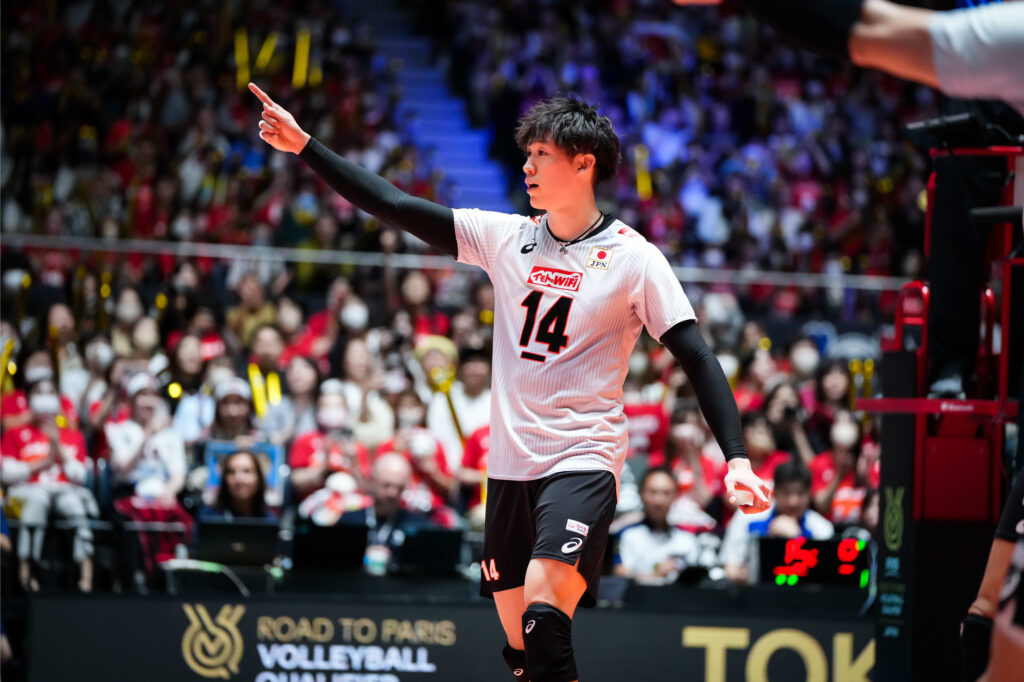
Of course, Ishikawa is already one of the best players in the world, but this year we have seen him grow significantly as a leader who can lead his team to victory.
Ishikawa has always had leadership skills, and I think he has always done his best as a captain, including encouraging his teammates. However, this year he has also gained experience in actually achieving results as a leader.
That experience came from leading the team to the top four in the Italian league last season for the first time in its history.
Last season, Ishikawa's Milan team finished the regular season in 8th place overall, and their first playoff opponent in the quarterfinals was Perugia, who finished first in the regular season.
Last season, Perugia was the strongest team, undefeated in the regular season. Milan had not even won a set against Perugia in the two regular season games. Moreover, they had to win three games against Perugia to advance to the semi-finals in the playoffs.
As expected, Milan lost the first game away from home 0-3 in straight sets, but managed to win the second and fourth games at home by the skin of their teeth in full sets, and then won the fifth game away from home 3-1 to advance to the semi-finals.
Ishikawa was at the center of the court. The team captain was a different player, but last season he was often off the court due to injuries, so Ishikawa, the court captain, was the de facto captain.
He actively calls out to his team members, encourages them, and explodes with joy when the team scores. He is also trusted by the setters, and at key moments in the game, the ball is tossed to Ishikawa regardless of whether he is in the front or back. There were times when he couldn't stand on the court. But he still actively supported the team from the bench.
And he won. After three wins against the strongest team, Perugia, he led his team to the top four in the league, a goal he had always set for himself in the three years since he moved to Milan.
I think that from his experience in the Italian League last season, Ishikawa has gained an intuitive grasp of a variety of things, such as what it means to achieve lofty goals, how to beat a superior team, how to score that last point, and what a strong team is.
I believe that being able to directly apply that experience to the Japanese national team led to the achievement of all of our goals this year (reaching the top four in the Nations League, winning the Asian Championships, and qualifying for the Paris Olympics) plus something extra (beating Brazil in the Nations League and winning a medal).
Although good individual players and players who lead their teams to victory may seem similar, they are slightly different. And to become a true player who leads a team to victory, it is essential to have experience of winning. This year, Ishikawa had that. Ishikawa became a "leader who leads the team to victory." I think that was one of the big differences that allowed us to beat Brazil and Italy this year, despite not being able to beat France last year.
② The growth of Takehito Miyaura
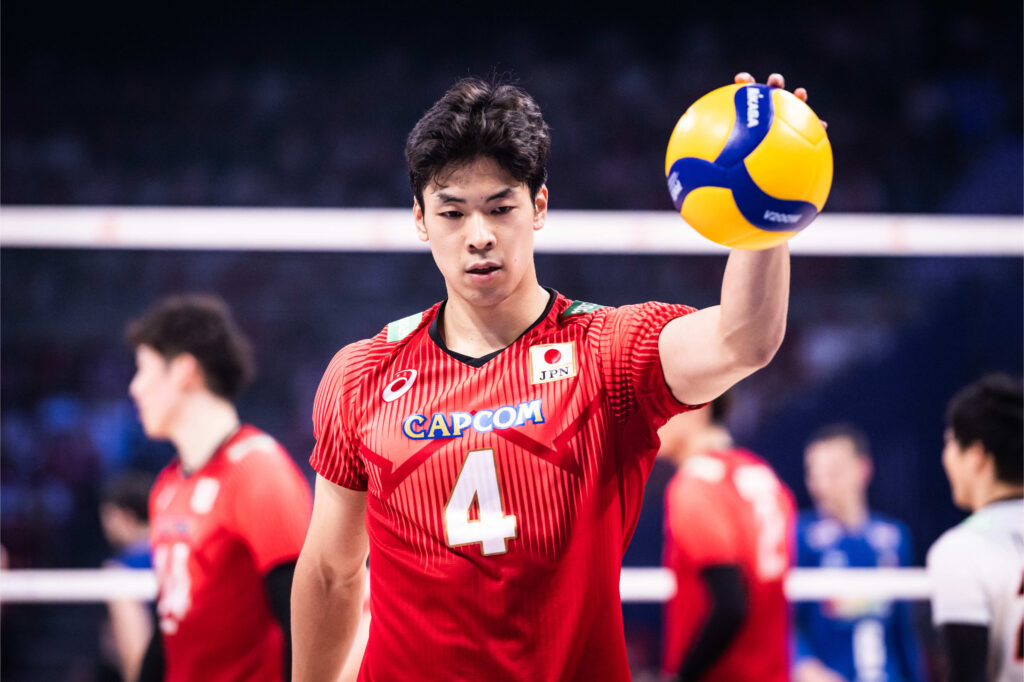
This player is indispensable when talking about Ryujin Nippon's progress this year. He did not play much in the recent Paris Olympic qualifying except for the final game against the United States, which was a dead end, so he may not have a strong impression as a main player.
But their historic win over Brazil in the Nations League and bronze medal win would not have been possible without his development.
To begin with, Nishida, who was originally a starter in the same position, was not in good form at the beginning of this year. He lost many spikes and his serves were not going in. He was a completely different person from the invincible player he was in last year's World Championship against France.
In this situation, it was Miyaura Kento who became the savior of Ryujin Nippon.
He made his debut in the team's friendly match against China this year, where he came on as a substitute and showed explosive performance with a succession of service aces. He also came on as a substitute in the Nations League match against France, scoring multiple spikes and becoming the driving force behind the victory.
And then, he was finally in the starting lineup for the first time in the Nations League match against Brazil. He looked a little stiff in the early stages of the match, but gradually he started to play with more determination, and his service ace at the end of the fifth set was the deciding factor, contributing greatly to Japan's first victory against Brazil in 30 years.
He went on to show excellent performances in the subsequent full-set match against Argentina and the third-place match against Italy, successfully leading Japan to their first medal in a major world tournament in 46 years.
Miyaura was selected for the Japanese national team last year, but was clearly one level lower than Nishida, who plays the same position. However, over the past year, he has grown into a player of the same level as Nishida.
So what has enabled Miyaura to grow to this extent?
It was definitely his experience in the Polish League last season. The Polish League is one of the top volleyball leagues in the world, just like the Italian League. Last season, Miyaura played for Nysa in the Polish League.
Unfortunately, there was a top-class player in the high-level Polish league (Ventala, currently playing for Perugia, Italy) playing in the same position, so I had very few opportunities to play in the starting lineup.
However, being used as a relief server a lot helped him further hone his serve, which was already a strong weapon. Also, because he didn't need much recovery time after games, he worked hard on training even on his off days, and as a result, he gained unmatched height and power. And above all, facing tall teammates at a high level in daily practice gave him more variety in how he scored points.
I think that because of Miyaura's growth, Ryujin Nippon continued to win and achieved good results even when Nishida was not in good form. I also think that this growth of Miyaura further inspired Nishida, which led to his excellent performance in the Asian Championship final and the Paris Olympic qualifiers.
Tanuki the Dragon Trainer, directed by Philippe Blanc
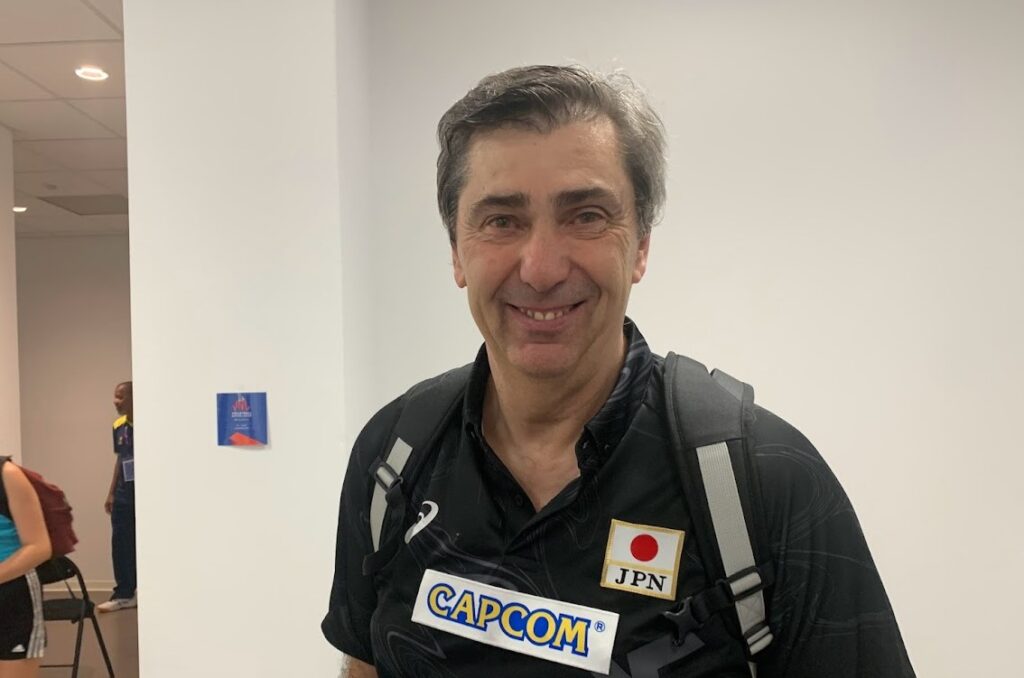
Of course I'm praising him (laughs).
After all, we can't talk about Ryujin Nippon's recent progress without mentioning this person. Since Coach Blanc joined the Japanese team in 2017, the team has clearly gotten stronger with each passing year. And this year, he has led the team to a bronze medal at the World Championships and fourth place in the world rankings, even though Russia is not in the team, and has truly become one of the world's strongest teams in both name and reality.
In the Japanese media, Ishikawa, Takahashi Ai, and Nishida are naturally featured due to their popularity, but when you ask coaches of foreign teams about the Japanese team, you often hear them say, "Philippe (Blanc) is doing a fantastic job."
To be honest, I still can't quite put into words what makes him so great. But there's no doubt that his coaching style matches the current Japanese national team well. The words he speaks to the players during timeouts are also very simple and precise.
As for this year, it was largely due to his skills that Nishida's performance was revived.
Even if Nishida was not in good form, we continued to use him patiently unless he was injured or injured. This was despite the fact that Miyaura had made such progress and maintained good form. I think Nishida would have started the entire Nations League final if he had not been injured (in fact, Nishida was the starter until just before the semi-final against Poland).
It is true that there may have been games where they could have won more easily if Miyaura had been used more, but if that had happened, we may not have seen Nishida's explosive performance in the Paris Olympic qualifiers, and he may not have been able to recover from his poor form even after the V.League season began.
Considering this, it is truly impressive that coach Blanc was patient, put him in the game, and helped him regain his form so brilliantly.
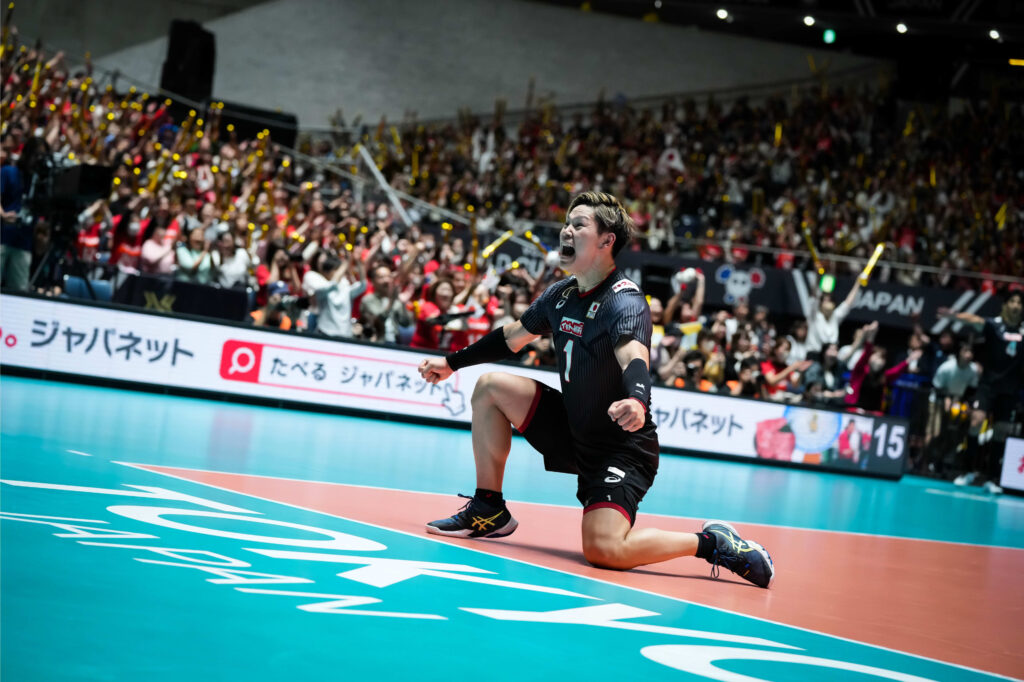
Also, in the Paris Olympics qualifying match against Egypt, he was unable to take effective measures during the match, but afterwards he had the players meet with each other to refresh themselves, and after the match against Tunisia, which had a day off, he made a brilliant comeback as a team. From this, I could sense his high level of understanding of his players and team management skills.
Furthermore, this year the B team also travelled overseas for the Asian Games and there was active switching of players with the A team, giving the impression that they were focusing on improving the overall level of the Japanese national team.
I get the feeling that he is thinking about many things, such as winning a medal at the Paris Olympics and Ryujin Nippon beyond that, and working on what is best for Japan. I am really looking forward to seeing what kind of team this calculating raccoon (and I mean that as a compliment) will create next year, a team that will become even stronger and aim for an Olympic medal.
I'd like to ask you directly how far you are aiming... (laughs)
Photo: FIVB, author
